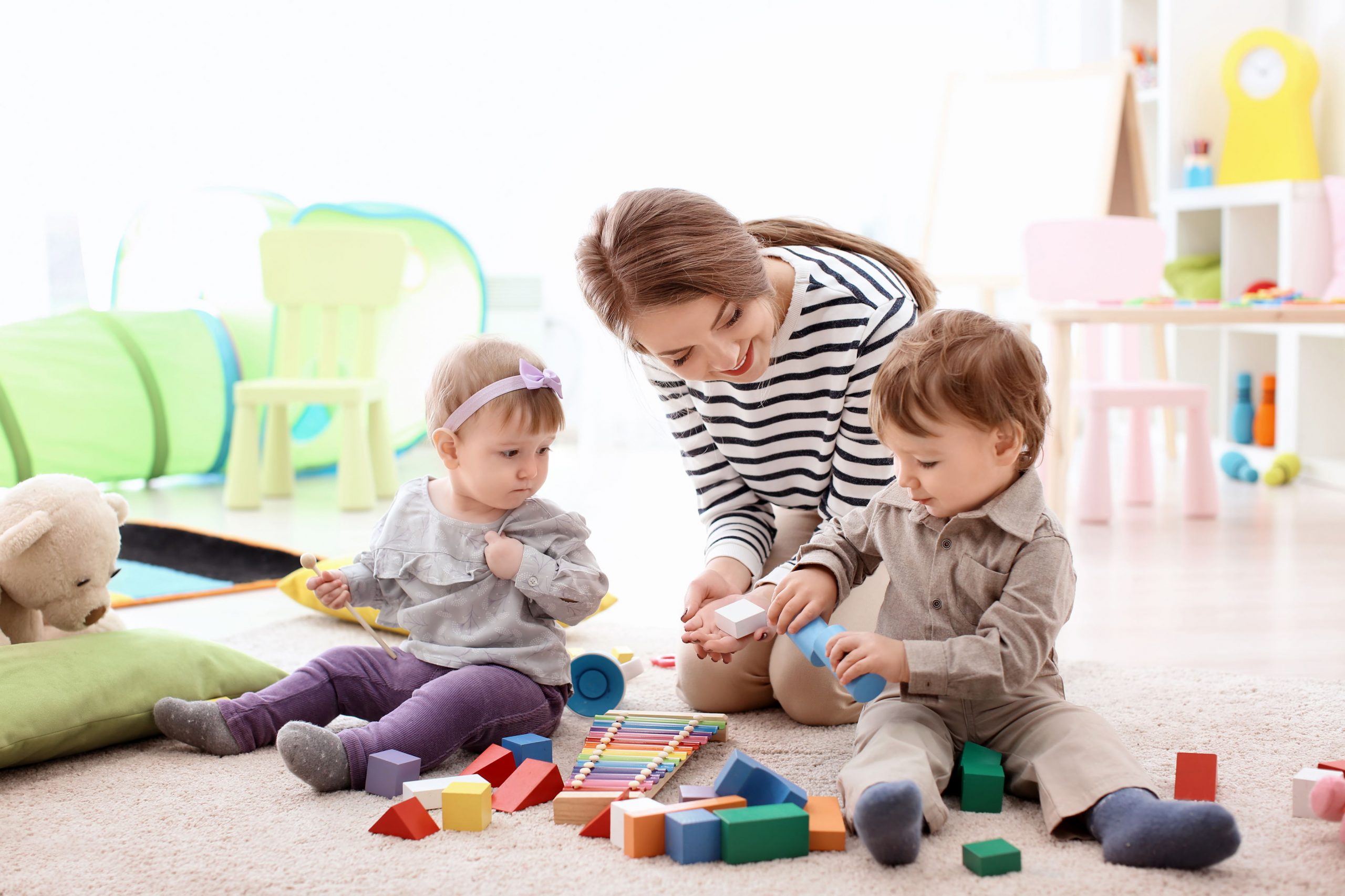Childhood experiences are the basis of a person’s physical and mental wellbeing, it’s really important that parents provide the best possible growing conditions for them. But, raising children well is no easy task. Proper parenting requires an investment of time, money and energy. On the financial side, child care can be really costly. It’s estimated that the average cost of daycares alone in America is about $11,666 per year. Obviously, not everyone has that kind of cash on hand. That’s why it would be smarter for families with kids to look into other options that would help them save that money instead.
When it comes to raising children, there are several priorities we should look into. One of the priorities is to make sure children’s physical health is being well taken care of. It’s fair to say that their mental health is equally important. Parents must also pay attention to a child’s social skills, as well as their education. But it’s very understandable that many parents don’t have enough time and/or money to provide the constant care a child needs. That’s why we’re looking into several options that could help parents save on both time and money.
Letting Your Kid(s) Hang Out With Friends And Family
If you find yourself swamped with work and/or other responsibilities, maybe your friends and/or family can take care of your kid(s) in the meantime. A lot of people out there shy away from that option to avoid embarrassment. But the thing is if you’re tight with your friends and family, leaving your own kid with them only makes that relationship better. Besides the fact that those folks will never charge for it, you can also trust them with the safety of your children. Along with your friends and family, you can create activities that help children improve their skills in a safe space.
A good way of asking for help from family and friends in such a situation is proposing a trade. If your family and friends are willing to take care of your kids, you should be willing to do the same for them whenever you get the chance. If not, you can suggest helping them with other stuff, such as running errands for them. All of these actions will help develop your relationship with your loved ones and show your kids the true value of those relationships.
Shared Babysitting
So, if your friends and family aren’t available to help, you’ll still have to figure things out. Hiring a babysitter to take care of your kids is an obvious solution. But paying a babysitter for every working day can pile up a pretty hefty bill. But what about hiring one babysitter for your kids, as well as your neighbors’ kids?
If you think about it, that would bring a bunch of perks. Number one, your kids get to hang out with other kids, so they don’t get bored. They also get to work on their social skills, which is important for any child’s mental health. There’s also the obvious advantage of sharing the cost. While it might not be free, paying half of a babysitter’s wage is better than paying the whole thing. Also, along with your neighbor, you might be able to find more affordable babysitters. Two people searching will always have better results than one.
Non-Profit Organizations
There are plenty of organizations out there to help families in need. Not only do these organizations create safe spaces for kids to enjoy their childhood, but also provide a sense of community, as well as educational experiences. These organizations will include local churches and YMCA’s. However, the list goes on much longer than that. There are different organizations that are created to serve different families from different ethnic backgrounds, with different needs. Let’s take a look at the list of non-profit organizations that can help you with child care:
National Head Start Association
This organization seeks to help out families and children. The main aim is to “provide family, early childhood education, and early childhood development services to children ages zero to five and pregnant women from income-eligible families.”
Child Care Aware® of America
Cooperating with over 600 state and local child care facilities, this non-profit organization works on providing affordable child care to American families.
ASPIRA Association, Inc.
This is the only national hispanic organization that focuses on developing education and leadership skills for hispanic youth.
National Association for the Education of Young Children (NAEYC)
NAEYC connects early childhood practice, policy, and research to promote high-quality early learning for all young children, birth through age 8. It’s a professional membership organization that includes over 60,000 members and 52 affiliates.
National Center For Families Learning (NCFL)
NCFL aims to lift families out of poverty through education. The organization cooperates with educators, literacy advocates, and policymakers. NCFL develops and provides programming, professional development, and resources for families. NCFL focuses on cooperating with different generations from the same family to reach its goals.
How Should Families Know Which Non-Profit Organizations To Contact?
There’s obviously a very wide selection of non-profit organizations that families in need could contact. The aim for any family should be to find the best opportunities to provide the highest-quality care for their children. Asking schools that kids attend for advice can be very helpful. These schools are aware of the kids’ abilities and interests.
Federal Child Care Financial Assistance Programs
It’s amazing that there are so many non-profit organizations that are willing to help families and children. But the great thing is that the federal government has many programs in place to help with the same thing. The issue of child care affects every family, especially on the financial side. The trick is to know which programs you’re eligible for. Let’s take a look at some of the programs out there to help families and children.
Child Care And Development Fund
Child Care and Development Fund is a program meant to help low-income parents with child care while they’re busy with work and/or training. To qualify for this program you must be:
- A parent/primary caregiver of a child no older than 13 years old
- A parent/primary caregiver of a disabled person no older than 19 years old
- Employed
- Enrolled in training (only available in certain states)
For all your inquiries about Child Care and Development Fund, contact your state, territorial or tribal Child Care and Development subsidy agency.
Publicly-Funded Pre-Kindergarten Programs
Started in Georgia in 1995, this program provides schooling for 3- and 4-year old students. While the program is universally available for all students, it mainly targets families and students of low-income. The program is available in 39 out of 50 states. Each state has a varied program. That means the benefits and education students can get can vary. It also means that eligibility for the program can vary from one state to the other. The main aim of the program is to increase students’ academic achievement. It also aims to increase school readiness.
Child Care Financial Assistance for Military Families
The government provides several solutions to help military families pay for child care, wherever they are stationed. At the same time there are several programs to provide financial aid to active service members helping them pay for child care. MilitaryChildCare.com (MCC) is a great resource to find all available child care financial assistance for military families.
For service members who may not find financial assistance programs where they’re stationed, applying for military child care fee assistance is another great option. There are also separate military child care fee assistance programs for each branch of the military. Check out the links below to learn about your branch’s programs:
Air Force Fee Assistance Program
Marine Corps Fee Assistance Program
U.S. Coast Guard Fee Assistance Program
Child And Dependent Care Tax Credit
This is a great way to save up on your taxes. The idea is that the government will give you tax credit based on the expenses you pay for child care. In more simple words, you can pay less taxes if you’re spending money on your kid(s).
How Does It Work?
Basically, you can claim this tax credit if you’re legally responsible for a kid who’s 13 years or younger. You can also claim it if you’re legally responsible for a disabled person who’s 19 years old or younger. That dependent has to live with you for at least half a year for you to qualify for this tax credit.
If you’ve paid for child care of an eligible dependent while working or looking for work, you can claim up to $4,000 in tax credit. If you and your spouse claim the tax credit together, you can claim up to $8,000 in tax credit.
After School Programs
These programs are a great way to keep a child in a safe place where they can develop their knowledge and skills. Every school has different after school programs. Some schools may offer sports programs. Other schools may focus more on academia and other soft skills. After school programs also provide a great opportunity for a student to spend more time with their friends. At the same time, teachers and principals get more time to evaluate the students and find new ways to develop their skills.
According to the government “attending after school programs can improve students’ academic performance. A national evaluation found that more than 40 percent of students attending 21st Century Community Learning Center programs improved their reading and math grades, and that those who attended more regularly were more likely to make gains.”
So if you’re too busy to provide your child with the care they need, after school programs are a great way to keep them somewhere safe. Also, a place where they can constantly develop their skills.
Conclusion
Having a kid costs a lot. Many parents struggle to find the time, energy and money to provide proper health care. Especially with today’s economy, paying for private child care services can be beyond many people’s budgets. Luckily, parents can find plenty of solutions if they look hard enough.
Leaving Your Kid(s) With Your Family/Friends
Starting with the most obvious one, getting your family and/or friends to take care of the child. This arrangement works well with plenty of people out there. If you think of all the lonely grandparents out there, having a grandson/granddaughter to keep their company can actually boost their mental and physical health. And, from the child’s perspective, it improves their bonds with their families and families’ friends. Having a strong connection with loved ones will always result in a stronger mental health development within children. Besides the other perks. Getting friends and family to take care of a child can save you money. It can also put you at ease as the child will be left with familiar people, in a safe environment.
Shared Babysitting
If your friends and family are not able to babysit your child for whatever reason, you should look into shared babysitting. Through an agreement with nearby neighbors, you can save money on babysitting fees. You can also provide an environment for your child where they can be around kids of the same age. In doing so, you can also improve your relationship with your neighbors.
Child Care Non-Profit Organizations
However, if you’re looking for other affordable solutions, or solutions that focus on skill development, you should look into child care non-profit organizations. If you look hard enough, you’ll find an organization that fits your needs, as there’s a huge variety of them out there.
Child Care Federal Assistance Programs
But you should also remember that the federal government has in place several programs to help Americans with the responsibility of child care. Some programs will focus on providing early education. Other programs will focus on providing child care facilities to families that need them. You’ll also find that the federal government has programs to help out with child care fees.
After School Programs
Finally, you should always check with your kid’s school if they have after school programs. These programs provide a great opportunity for the child to develop their skills somewhere that you already know is very safe and supportive.











